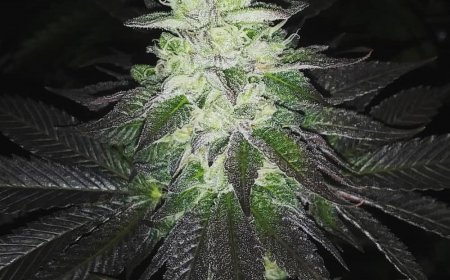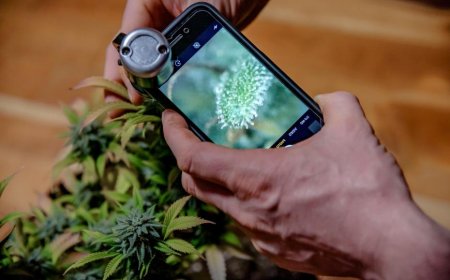Does Kratom Show on a Drugs Test?
Does Kratom Show on a Drugs Test?" Learn about kratom detection, its lifespan in your system, and how to avoid positives.
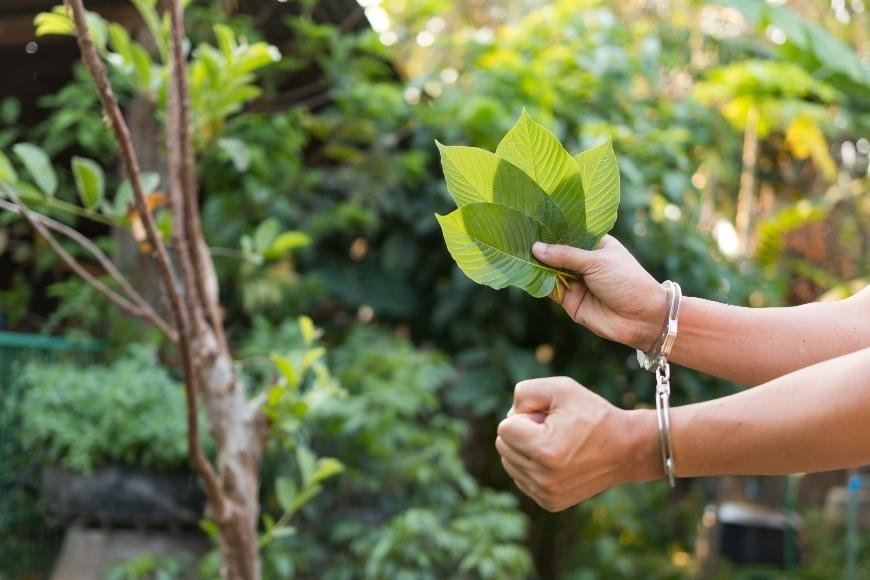
Does Kratom show on a drug test? The inquiry of whether kratom appears on a drug test has been posed by many who partake in recreational drugs, especially those utilizing the leaves for their energizing effects at lower doses or pain relief when taken in higher amounts. In this blog post, we will examine the duration of kratom in one's system and whether it can be detected on standard drug tests.
We'll explore how long kratom stays in your system and whether standard drug tests can detect its presence. We will also delve into the likelihood of testing positive after taking kratom and provide tips on how to avoid such an outcome. Lastly, we'll discuss alternatives to kratom that don't show up on drug tests.
So if you're wondering "does Kratom show on a drugs test?", stick around as we dive deep into these topics and more.
Table of Contents:
- Understanding Kratom Drug Tests
- How Long Does Kratom Stay in Your Body?
- Is Kratom Detected on Standard Drug Tests?
- Chances of Testing Positive for Kratom: Factors to Consider
- How to Avoid Testing Positive for Kratom
- Alternatives to Kratom That Won't Show Up on Drug Tests
- Kratom and Drug Testing: What You Need to Know
- FAQs in Relation to Does Kratom Show on a Drugs Test?
- Conclusion
Understanding Kratom Drug Tests
Kratom, a tropical tree native to Southeast Asia, has become popular for its potential therapeutic benefits. But, before you consume it, it's important to understand how kratom may show up on drug tests.
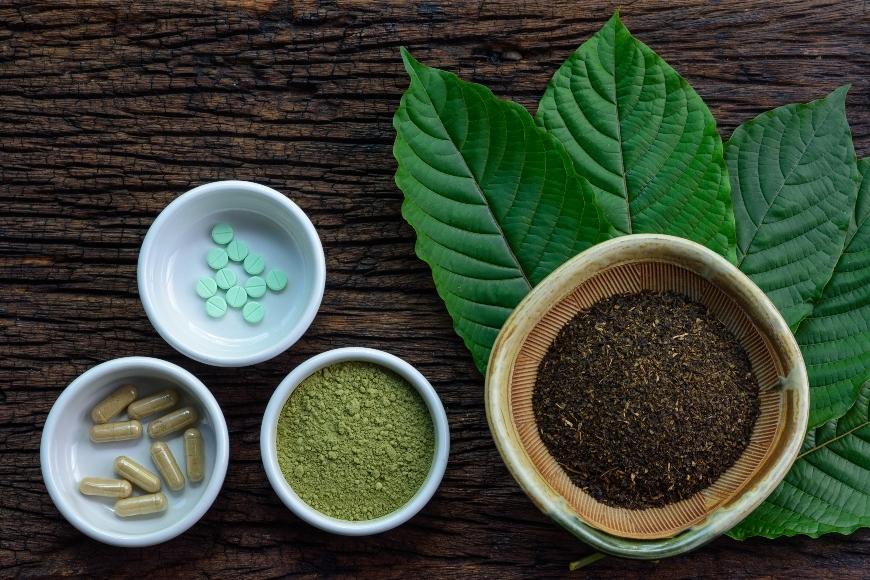
Types of Drug Tests
Urine and blood tests have the shortest detection windows, while hair follicle testing can detect substances over a longer period of time. Each test has different detection windows and sensitivities. For instance, urine and blood tests can detect substances within hours or days after use, while hair follicle testing can trace substance use back several months.
Kratom Detection
Standard drug screens usually do not test for kratom alkaloids like mitragynine or 7-hydroxymitragynine, which require specialized tests to detect. A specialized test would be required to detect the presence of kratom in your system, which are less commonly used due to their higher cost. Liquid chromatography-mass spectrometry techniques are often employed when testing specifically for kratom compounds.
Accuracy of Kratom Drug Screenings
The accuracy of these specialized drug screenings depends on numerous factors, including individual metabolism rates, body mass index (BMI), age, and frequency/duration of usage. Accordingly, it becomes challenging to provide an absolute 'yes' or 'no' answer about whether you will pass a drug screening after consuming Kratom.
Conclusion
The likelihood of having Kratom detected in your system during a routine drug screen is low unless there is reason to suspect its usage. However, educating oneself about the potential implications associated with consumption is always recommended before deciding whether using this plant-based product aligns with personal health goals and responsibilities towards maintaining safe environments at work, school, etcetera.
How Long Does Kratom Stay in Your Body?
Wondering about its duration of detectability in your system?
Various elements, such as age, body fat content, heredity and metabolism rate can affect how long kratom is detectable in the body. Recent studies show that the half-life of the primary active ingredient in kratom - mitragynine - is approximately 24 hours. This means that it takes about one day for half of the ingested substance to leave your system.
However, this doesn't mean all traces of kratom will disappear from your system within two days. Depending on individual metabolism and frequency of use, among other factors, some people may still test positive for up to nine days after ingestion.
Factors That Affect How Long Kratom Stays In Your Body
- Frequency and Quantity: If you consume large quantities or frequently use kratom, it's likely to stay longer in your system due to accumulation over time.
- Diet: Your diet can also influence how quickly your body metabolizes this drug. A high-fat meal could potentially speed up absorption since mitragynine is fat-soluble.
- Liver Function: A healthy liver function plays a crucial role in processing substances like drugs. Hence, individuals with impaired liver function may take longer periods before eliminating the drug from their systems completely.
Understanding these variables can help predict how long it might take for traces of kratom usage not to be detected anymore. But remember, everyone's body reacts differently, making exact timelines hard to determine without specific testing.
Is Kratom Detected on Standard Drug Tests?
Kratom, the tropical tree with psychoactive properties, has been gaining popularity. If you're concerned about drug tests, it's important to understand how kratom interacts with them.
Standard drug tests such as urine, saliva, and hair follicle tests are designed to detect substances like marijuana, cocaine, or opioids. They typically do not test for kratom.
The distinctive molecular makeup of mitragynine and 7-hydroxymitragynine renders them dissimilar to other regularly tested drugs, thus avoiding a false positive on most standard drug tests. Therefore, they would not cause a false positive result on most standard drug screenings.
However, specialized drug screens can detect the presence of kratom in your system if there's suspicion of use. LC-MS techniques, which are more costly than regular screening procedures but also very precise and delicate, can be utilized to detect the existence of kratom in your system if there is suspicion of use.
Types of Kratom Drug Tests
- Urine Test: A urine test might show traces of Kratom up until seven days after consumption depending on usage frequency and dosage.
- Hair Follicle Test: This type of test can potentially detect Kratom up until three months after use although research into this method remains limited.
- Blood Test: Blood tests may reveal the presence of Kratom metabolites within several days post-consumption; however, these types of assessments aren't common due to their invasive nature and higher cost compared with other testing modalities.
In conclusion, while it's unlikely that regular employment or legal substance screenings will pick up on Kratom usage unless specifically tested for, it isn't impossible either. So, discretion should always be exercised when using any psychoactive substances, including those considered 'legal' or 'natural'.
Chances of Testing Positive for Kratom: Factors to Consider
The frequency, amount and type of kratom consumed, as well as the user's metabolism rate and hydration levels can all influence whether a drug test will detect its metabolites.
Kratom is broken down into metabolites in the liver, which can be detected in urine tests designed to identify them. Yet, these exams are not frequently utilized due to their expense and intricacy.
If you're a frequent user consuming large quantities daily, your chances of testing positive increase significantly compared to an occasional or one-time user. Kratom accumulates in your system over time with regular use.
Your metabolic rate also plays a significant role in how long kratom stays detectable in your body. A faster metabolism will break down and eliminate substances quicker than a slower one.
Hydration levels are also crucial; if you're well-hydrated when taking the test, it could dilute any potential traces making detection less likely.
Usage Frequency & Quantity
- Daily Users: If you consume kratom daily or multiple times per day, there's a higher chance that its metabolites will accumulate within your system - increasing the likelihood that they'll be detected during a drug test.
- Moderate Users: For those who consume kratom moderately (a few times per week), it may take longer for all traces to leave their systems but still stand some risk.
- Sporadic Users: Sporadic users or first-timers have minimal risk as their consumption doesn't allow substantial build-up within their bodies.
Type of Drug Test Administered
- Urine Tests: This common form detects recent substance use typically within two days after ingestion but can sometimes pick up usage from several weeks prior depending on frequency and amount consumed.
- Blood Tests: While blood tests offer more accurate results than urine ones do by detecting actual presence rather than just residues left behind post-metabolism process - they're rarely used due low detection window period which lasts only around six hours following intake.
Remember, while these factors influence probability greatly, no guarantees exist regarding whether someone would pass/fail given specific circumstances surrounding each case individually.
How to Avoid Testing Positive for Kratom
Want to avoid testing positive for kratom? Here are some tips:
Understand Kratom's Half-Life
Knowing the half-life of kratom, it can remain in your system for up to nine days depending on dosage, frequency of use and metabolism. If a drug test is imminent, it's advisable to stop using kratom until after the exam.
Stay Hydrated
Drinking plenty of water can help flush out toxins through urine production. Take heed not to consume too much liquid, as this can result in diluted urine specimens which could be seen as suspicious during testing.
Maintain a Healthy Lifestyle
Regular exercise can speed up metabolism, while balanced nutrition ensures efficient functioning of organs involved in detoxification, like the liver and kidneys.
Some people suggest that activated charcoal could potentially interfere with the absorption of drugs like kratom into the bloodstream, reducing their detectability. However, more studies are needed before this method can be recommended confidently.
Remember, these methods aren't foolproof. They merely reduce the chances of testing positive for kratom. It's always best to consider the legal implications and health risks associated with regular usage before deciding whether or not to consume any psychoactive substance, including kratom.
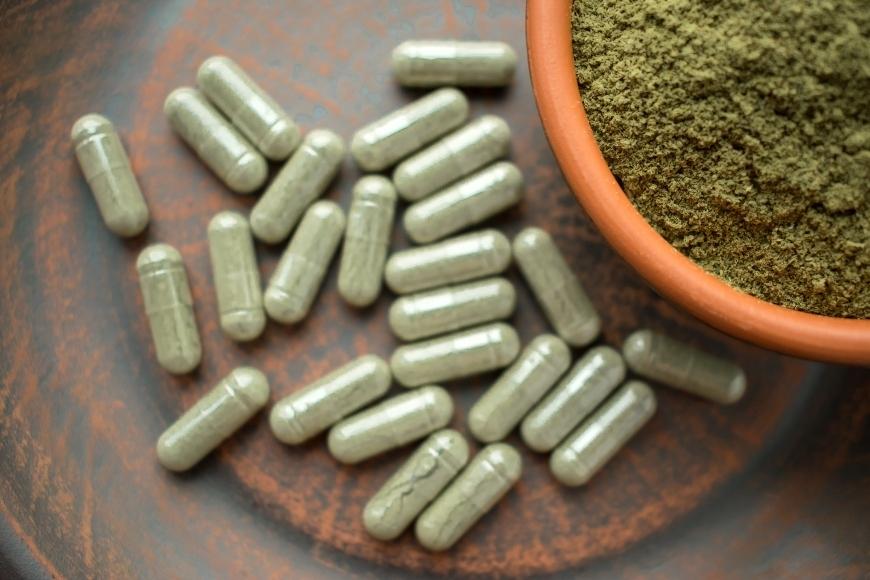
Alternatives to Kratom That Won't Show Up on Drug Tests
If you're a fan of kratom's effects but worried about drug tests, there are several alternatives available. These substances can provide similar benefits without the risk of detection during standard testing procedures.
Blue Lotus
Blue Lotus is an ancient Egyptian plant known for its calming and euphoric effects. It's often used in teas or tinctures and isn't typically detected in most drug screens.
Kava Kava
Kava Kava is a Polynesian root traditionally used for its sedative properties and ability to induce relaxation. Like Blue Lotus, it doesn't usually show up on standard drug tests.
Akuamma Seeds
Akuamma seeds from Africa contain alkaloids that produce pain-relieving effects similar to those provided by kratom but aren't commonly tested for in regular screenings.
CBD (Cannabidiol)
CBD products have surged in popularity recently due to their potential health benefits such as reducing anxiety and managing chronic pain - all without psychoactive side-effects or appearing on typical drug tests.
Mitragyna Hirsuta
Known as "Kra Thum Khok" in Thailand, this relative of Mitragyna Speciosa (kratom) provides milder stimulating effects than its cousin does but also escapes detection during routine screenings.
Sakae Naa
Also known as Combretum Quadrangulare, Sakae Naa is native to Southeast Asia like kratom; however, it's not widely recognized yet so it's unlikely any test would screen specifically for this substance.
Due to the uniqueness of each person's physiology, reactions may vary significantly between people. Always seek medical advice before beginning any supplement program, particularly if you are already on other drugs or have existing health issues.
Kratom and Drug Testing: What You Need to Know
The question of whether kratom will appear on a drug test has been controversial, yet the answer is not clear-cut. The response to the inquiry of whether kratom appears on a drug test is not as simple as one may think.
Standard drug tests like urine or saliva tests do not typically screen for alkaloids such as mitragynine and 7-hydroxymitragynine, which are found in kratom. However, specialized testing can detect these substances if they're specifically looked for.
The duration kratom persists in your body is contingent on multiple elements, such as metabolic rate, percentage of fat, age and how often it's consumed plus the amount taken. It's estimated that it could take anywhere from one day to nine days for the substance to be completely eliminated from your system.
Despite this information, there's still a risk associated with using kratom if you're required to undergo regular drug testing. This is because although it may not show up on most standard tests today, advancements in technology mean detection methods are always improving and changing.
If you want to avoid testing positive for kratom but still enjoy its effects, consider exploring alternative substances that don't show up on drug tests. These alternatives should ideally provide similar benefits without posing any legal risks or potential employment issues due to failed drug screenings.
In conclusion (without actually concluding), while current evidence suggests that typical use of kratom won't appear on many common types of drug tests, no guarantees can be made about future developments in testing procedures or specific circumstances where more advanced screening techniques may be used.
FAQs in Relation to Does Kratom Show on a Drugs Test?
What Does a 12-Panel Drug Test Show?
A 12-panel drug test typically screens for marijuana, cocaine, PCP, amphetamines, opiates, benzodiazepines, barbiturates, methadone, propoxyphene, methaqualone, ecstasy, and oxycodone.
Conclusion
Does Kratom Show on a Drugs Test? Kratom can be detected in drug tests, but it depends on the type of test being used and whether it's included in the panel.
It can stay in your system for up to nine days, so if you're concerned about testing positive, it's best to avoid using it altogether or switch to alternative substances. While kratom is not usually included in standard drug screenings, some specialized tests may include it as part of their panel. As with any substance, taking kratom comes with risks and consequences, so make informed decisions before experimenting with new drugs.

